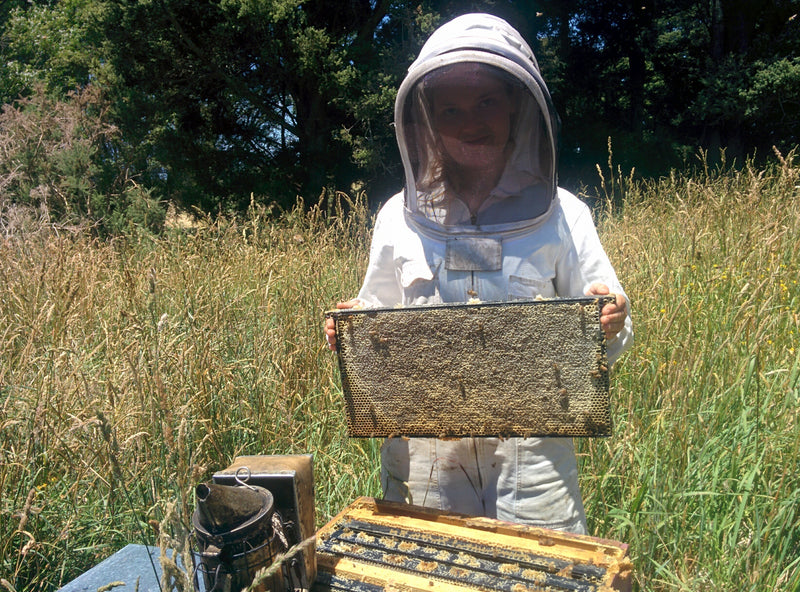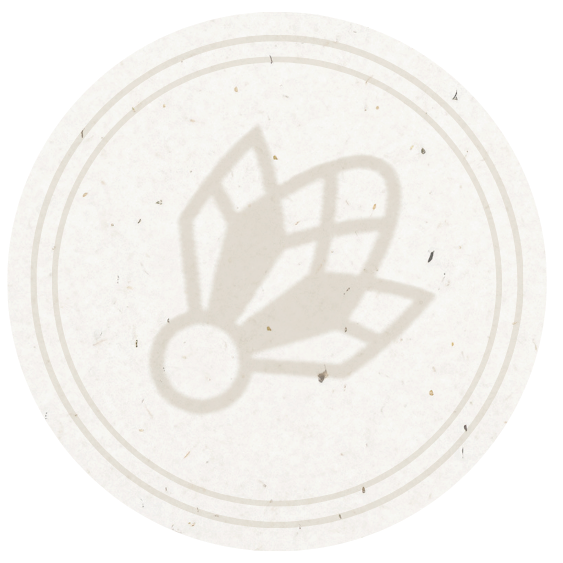I didn’t set out to become a beekeeper.
It unfolded gradually, like the way foragers return to the hive at dusk - purposeful, instinctive, and somehow inevitable.
My mum started keeping bees in the mid-1980s, and from then on, beekeeping was just part of life. It was the backdrop to my childhood, the soundtrack to summer, and the kind of thing we talked about over oatcakes and sweet tea. While other families debated politics or pop culture, we were discussing queen cells, forage conditions, and the temperament of our colonies.
Still, I didn’t go straight into it. I trained as a journalist, drawn to storytelling and the power of words to shape how people see the world. But the deeper I got into the industry, the more I felt a disconnect. The ecological crisis unfolding around me - the collapse of pollinator populations, the degradation of British landscapes - wasn’t something I could ignore. So I left my job in London, moved back home to Staffordshire, and began an apprenticeship in bee farming through the Bee Farmers’ Association, in partnership with Rowse Honey.
That was the turning point. I learned the rhythms of commercial beekeeping, the weight of supers, the quiet resilience of the hive. And somewhere in that process, Litha Bees was born - not just as a business, but as a way of life. I wanted to elevate British honey as medicine, to restore folk knowledge, and to give people back a sense of agency over their health in a time of mass disconnection. Honey, to me, isn’t just sweet - it’s sacred. It carries the signature of the land, the season, and the species. It’s a living archive.
Around the same time, I was exploring medicinal mushrooms - reishi, lion’s mane, chaga - drawn to their adaptogenic properties and ancient wellness traditions. But I struggled to make them part of my daily routine. Capsules felt clinical, powders were bitter, tinctures forgettable. Then one winter evening, fighting off a cold, I stirred a spoonful of mushroom extract into hot water and instinctively added honey. Something clicked. The drink was soothing, palatable, and potent. That simple moment - born of intuition and necessity - sparked a new chapter.
That’s how our adaptogenic honey blends came to be: a fusion of two ancient medicines, the alchemy of the hive and the wisdom of the forest. Each jar is a quiet rebellion against overprocessed wellness. Each little jar is a return to what’s wild, whole, and rooted in place. My journey - from journalist to beekeeper, from daughter to founder - is a story of listening closely to the land, and letting the bees lead me.
So, what can we do about it?
- • Plant native, pesticide-free flowers in your area.
- • Avoid using synthetic pesticides, herbicides, and fungicides
- • Buy local honey from ethical beekeepers
- • Support regenerative agriculture and organic farming
- • Lobby for stronger pollinator protection laws
- • Encourage councils and landowners to manage verges for biodiversity
- • Donate to or volunteer with pollinator conservation groups
- • Educate others—especially children—about the role of pollinators
- • Push for climate action at every level
- • Push for International Pollinator Protection Agreements
Support the World Bee Project
Your donation helps support important causes in our community. Every contribution makes a meaningful impact.



